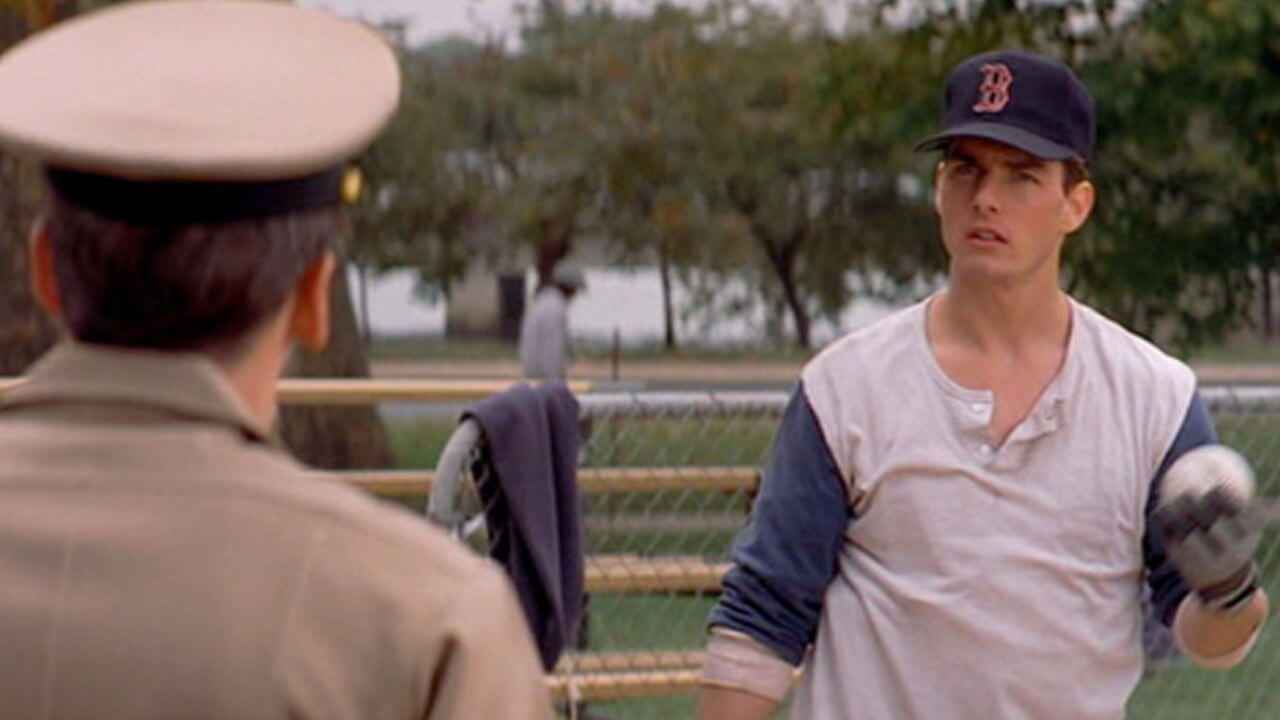One of my all time favorite screenplays (and movies) is Aaron Sorkin’s script for A Few Good Men. So I was honored and excited when Film Courage let me add an analysis of this outstanding screenplay to my recent interview with them. (If you haven’t yet seen that full video interview about my approach to structure and character, the link is below at the end of this article.)
Film Courage has now posted the videos of Part 1 and Part 2 of this new discussion, in which I use A Few Good Men to illustrate the elements of the hero’s outer journey in the Setup, Opportunity and New Situation of the film.
Among the things I reveal in the interview is how Aaron Sorkin creates immediate empathy with Daniel Caffee, the Tom Cruise character who’s the hero of the film, by making this character highly skilled.
When I lecture or write about empathy, I usually emphasize what I consider the three most powerful ways to get your reader or audience to identify with a character: sympathy (making your hero the victim of some undeserved misfortune); jeopardy (putting your hero in danger of losing something of vital importance to him); and likeability (showing your hero as kind, generous, good-hearted and/or well liked by others).
When we meet Caffee practicing for a softball game as he’s confronted by an opposing attorney, we see evidence of two of these: jeopardy (he’s in danger of losing a case involving a drug charge against one of his defendants); and likeability (Caffee isn’t defending some evil villain, but rather a poor, dumb seaman who thought the bag of oregano he smoked was actually marijuana).
But the most alluring quality Caffee exhibits is his skill at turning a charge of thirty days in the brig and loss of rank into a misdemeanor with restricted duty and no damage to his client’s career. Caffee’s casual, offhanded ability to accomplish the impossible creates greater empathy with him, because we’re all drawn to, and envious of, characters whose powers exceed our own. Movies let us become those characters, and experience those skills ourselves – at least on a subconscious level.
The ability to simply get the job done explains much of the appeal of superheroes, skilled assassins and spies (and in bygone film eras, gunslingers), as well as all the TV detectives who invariably catch the bad guys. But a high level of skill can also increase our psychological connection to everyday characters that are nonetheless smarter, more talented, more athletic or more accomplished than we are.
Of recent movies, The Martian, Dr. Strange (before he gets his super powers), Hidden Figures, Arrival, Now You See Me, The Imitation Game and The Big Short all get us to empathize with heroes who aren’t introduced as extraordinary or bigger than life, but who are immediately shown to be exceptional, highly skilled characters.
Applying this same principle to your own screenplays, novels, speeches or business related stories will have the same effect on your audiences and readers, and can even help strengthen identification with characters who aren’t necessarily as sympathetic or likeable as traditional heroes.
– Michael
To see the first two Film Courage videos of my dissection of A Few Good Men, just click here:
And to see the complete video of my interview with Film Courage, detailing my approach to story, structure and character, click here:








Thank you, Michael Hauge! Ever post is a gem of knowledge and creativity.
Your books on craft are keepers.
Thank you!
Fantastic! I’m applying your teaching right now as I begin a new novel.
Hi Michael,
Thanks for your remarks about AFGM! Spot on it seems. Now I am rather curious how you would compare that movie to another legal drama I like, The Verdict.
Care to compare / contrast?
Thanks,
Roy
PS: still needing to schedule story development after 3 years!
Your talent for seeing the obvious cleverly disguised in the invisible is uncanny.
Yet, again you tell me what I should have seen.
Hi Michael
As you know, we teach speaker clients to not brag about themselves, as they may come across as special, or too different from the audience. What are your thoughts about speakers highlighting their ‘super powers’ without creating this separation from the people listening to them? My gut tells me that if they introduce themselves in some type of relatable struggle, then discuss their unique skill, they can still connect.
As always, my friend, your wisdom is much appreciated.
Michael,
Is it possible to create empathy for a junior high school nerd who gets called butt face and is pushed out a classroom window but then rallies to become the most widely known member of his 700+ high school graduating class?